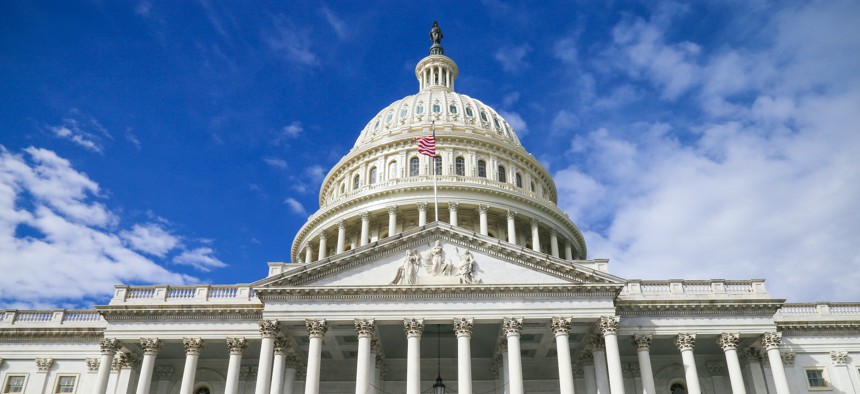Policy
Feds’ financial, ethics documents would be easier to find under proposed legislation
The legislation would fix the 'labyrinthian process of requesting them,' one open government advocate says.

Photo by Louis Velazquez on Unsplash
A bipartisan bill introduced in Congress last week would fix what one transparency advocate called the “labyrinthian process” of obtaining financial and ethics disclosures for administration officials and political appointees.
Nine Republicans and one Democrat have signed onto the Executive Branch Accountability and Transparency Act, which would require the Office of Government Ethics to create a central database for these documents.
It comes on the heels of The Wall Street Journal’s investigation into potential conflicts of interest with thousands of federal officials and their stock holdings, for which the Journal had to create its own database.
“Under current law, non-career appointees in the executive branch are required to make public documents verifying adherence to ethics guidelines and financial transparency; however, they only exist on paper,” said a press release from the office of Rep. Nick Langworthy, R-N.Y., the lead sponsor of the bill.
Florida already requires its public officials to file financial disclosures, which are available online for public inspection. Lawmakers this year passed a measure (SB 774) to place additional financial-disclosure requirements on municipal elected officials.
The new law requires mayors and elected members of municipal governing boards to submit financial-disclosure reports like those filed by lawmakers, statewide elected officials, county commissioners and school-board members. Those reports require providing information about net worth, assets, liabilities and income.
Most elected city officials were required to fill out less-detailed disclosure reports. Opponents of the bill raised concerns that the new requirement could dissuade people from running for local offices.
Federal government disclosure lags behind
Under this latest federal bill, a new centralized database from OGE would have “financial disclosure reports and amendments to public financial disclosure reports; approval or authorization for an individual to accept a gift from an outside source; written ethics agreements; ethics training certificates, and certificate of divestiture of certain financial interests.”
OGE currently has a database, but “it's a very small-scale version of it; it only houses the disclosures and the various documents for the top 69 or so officials,” said Dylan Hedtler-Gaudette, senior government affairs manager at the nonprofit Project on Government Oversight, which endorsed the bill.
The ethics office was established by the Ethics in Government Act, first enacted in 1978 in the wake of the Watergate scandal. The office collects and shares documents in accordance with the act and its subsequent updates.
All of these documents and disclosures “are actually required to be publicly available as a matter of statute, but the thing is they’re not easily available,” Hedtler-Gaudette said.
There is a “labyrinthian process of requesting them and each agency handles it a little bit differently. You have lead times, you have wait times depending on the agency.” This bill “operationalizes the actual public part.”
If enacted, the bill “will mean that people [at organizations] like POGO and The Wall Street Journal don’t have to create these kinds of databases on our own,” he added.
Heritage Action, a conservative advocacy organization; BullMoose Project, a nonprofit working to build the conservative populist movement; and the National Taxpayers Union, an advocacy group, also endorsed the bill. OGE said it doesn’t comment on pending legislation.
The News Service of Florida contributed. Courtney Bublé is a staff correspondent who covers the federal government with a focus on oversight, management, contracting and regulations for Government Executive, where a version of this story was first published.
NEXT STORY: Florida Gov. DeSantis signs State Guard expansion
